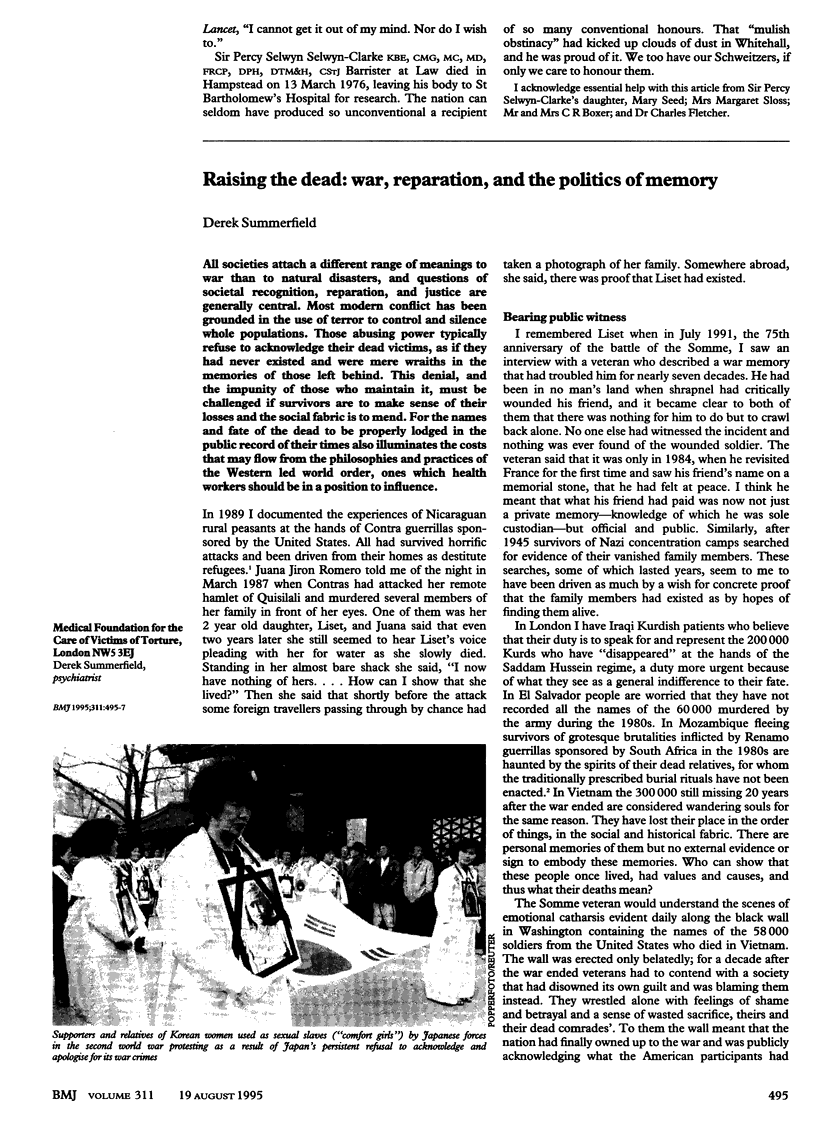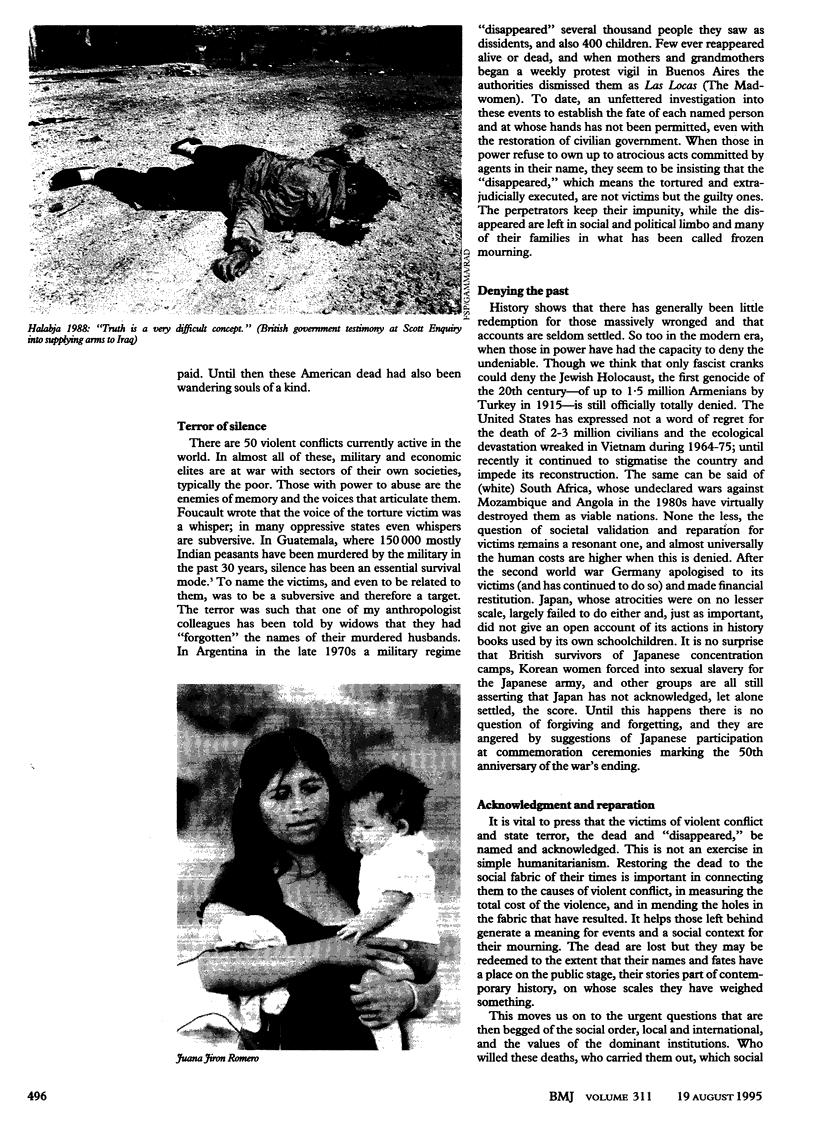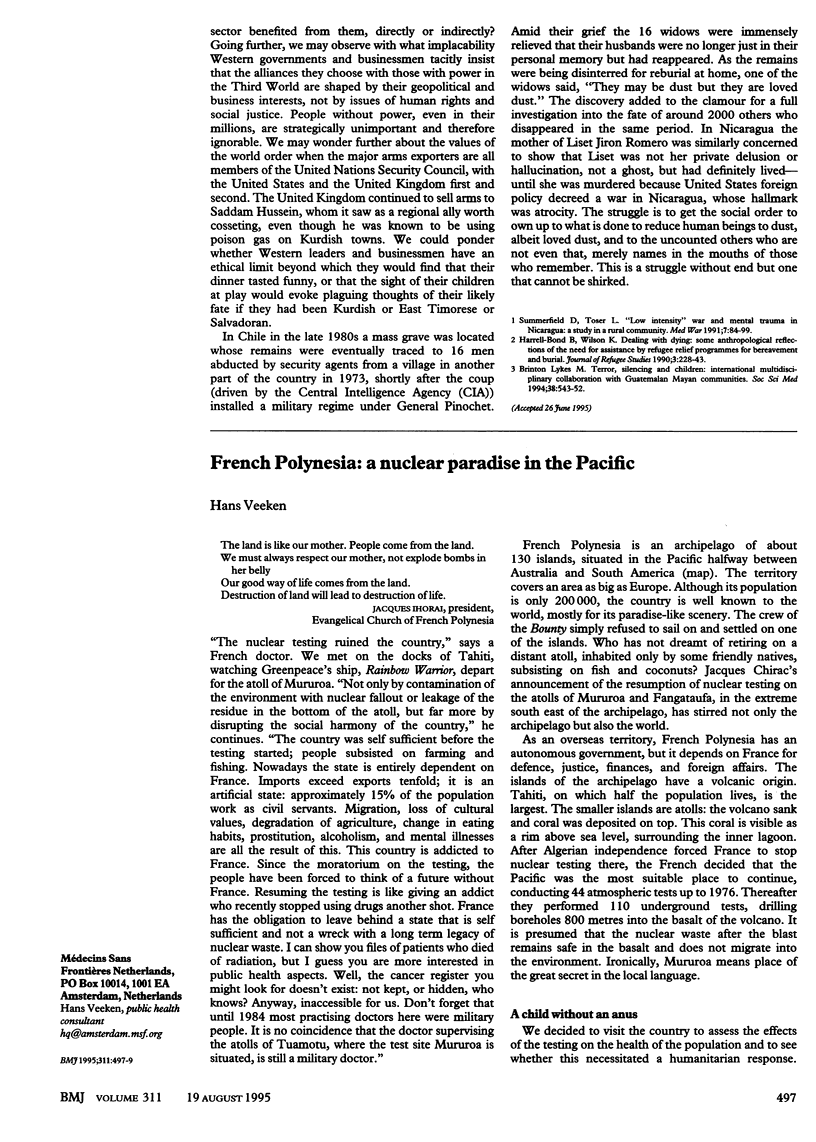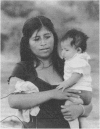Abstract
All societies attach a different range of meanings to war than to natural disasters, and questions of societal recognition, reparation, and justice are generally central. Most modern conflict has been grounded in the use of terror to control and silence whole populations. Those abusing power typically refuse to acknowledge their dead victims, as if they had never existed and were mere wraiths in the memories of those left behind. This denial, and the impunity of those who maintain it, must be challenged if survivors are to make sense of their losses and the social fabric is to mend. For the names and fate of the dead to be properly lodged in the public record of their times also illuminates the costs that may flow from the philosophies and practices of the Western led world order, ones which health workers should be in a position to influence.
Full text
PDF


Images in this article
Selected References
These references are in PubMed. This may not be the complete list of references from this article.
- Lykes M. B. Terror, silencing and children: international, multidisciplinary collaboration with Guatemalan Maya communities. Soc Sci Med. 1994 Feb;38(4):543–552. doi: 10.1016/0277-9536(94)90250-x. [DOI] [PubMed] [Google Scholar]
- Summerfield D., Toser L. 'Low intensity' war and mental trauma in Nicaragua: a study in a rural community. Med War. 1991 Apr-Jun;7(2):84–99. doi: 10.1080/07488009108408972. [DOI] [PubMed] [Google Scholar]





